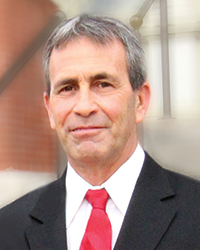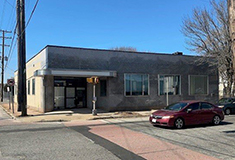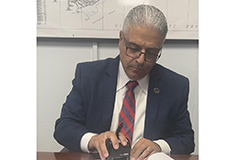News:
Rhode Island
Posted: April 8, 2009
New tech. education needs to get out to the tradesmen
We see and hear a lot about green buildings and new efficient technologies these days. I enjoy reading about new ways to heat our houses and light our kitchens as much as anyone, but just like my home is never going to grace the pages of Architectural Digest, there always seems to be a disconnect between new technologies I read about and what's actually available to me. I ask my plumber, "What about a solar assist to the hot water?" "More trouble than it's worth," comes the reply. "What's a good brand of inverter to use for a bank of photovoltaic cells?" I ask the electrician. "Pardon?" he says. The new waves of green technology are rolling right past my house, to break on someone else's shore.
The tradesmen I know are good guys, but it's hard to fix as many faucets in a week as my plumber does and also have the leisure time to learn about new kinds of solar heating systems. But solar cells aren't going to install themselves, either.
This is where Norm Cook, instructor of advanced building technology programs at area colleges and principal of architect Tonic Alchemy and Steve Kitchin, VP of corporate education and technology at the New England Institute of Technology (NEIT) come in.
Norm runs education programs for working contractors. Some are short, some are longer, but all are aimed at getting people out in the field up to speed with new developments in green construction. He's been explaining to carpenters that wall studs should be offset so they don't conduct heat out, and to insulators that the rigid foam is way better than pink fluff.
Steve's program is, if anything, more ambitious. NEIT has 3,000 undergraduate students, but also has around 600 "professional development" students each year in the building trades. Each department in the school has an outside-the-building technical advisory committee whose charge is to advise the faculty about technological changes in their industries that students should be taught. Based on this outside advice, NEIT has added several green offerings to their curricula. Their HVAC students now have courses in integrating geothermal and solar hot water systems, and their electrical students look at photovoltaic systems, and are even installing a wind turbine on their Warwick campus.
Norm and Steve are solving an important problem, but there's a long way to go. Rhode Island has almost 17,000 contractors, plumbers, carpenters and electricians to reach out there. In many ways, these problems are not new, or even confined to the building trades. The USDA Cooperative Extension program was established in 1914 to bring agricultural research to farmers. The problem then was that farmers were too busy plowing fields and buying seed to learn about new techniques. The Extension Service sent agents out into farm towns to talk up new seed strains and new markets, as well as new technologies. The lesson today is the same as the lesson then. New technology is fascinating stuff -- it can change our world -- but it doesn't get out there into the world on its own.
Tom Sgouros is the editor of the Rhode Island Policy Reporter, Providence.
Tags:
Rhode Island
MORE FROM Rhode Island
Washington Trust named one of healthiest employers in Rhode Island by PBN
Westerly, RI For the fourth year in a row, Washington Trust has been named by Providence Business News (PBN) as one of the healthiest employers in Rhode Island. Washington Trust was one of 27 organizations selected for PBN’s 2025 Healthiest Employers Awards,

Quick Hits
Columns and Thought Leadership

Warwick offers convenience of city living, but feels like a smaller, close-knit community - by Frank Picozzi
Located in the heart of southern New England, Warwick is a perfect community in which to locate your business, or find a spot to develop commercial and residential projects. Warwick brings the convergence of air, rail, highway, and maritime travel in one convenient, central location. We’re home to Rhode Island T.F. Green

Diverse mix of businesses makes Warwick the perfect community - by Frank Picozzi
For those looking for some recreation in the great outdoors, wooded trails and biking paths with spectacular water views, lush green grass perfect for a picnic, fun playgrounds with all the amenities, and modern sports fields can be found easily throughout Warwick. But what does one do when the

Nine Post Rd. receives approval for six units and commercial space - by Frank Picozzi
After several years of planning, the owners of a property in historic Pawtuxet Village recently received planning board master plan approval for a mixed-use building consisting of six residential units and 1,510 s/f of commercial space along the banks of the majestic Pawtuxet River.

The City of Warwick is the perfect choice - by Frank Picozzi
The late summer sky was bright and the mood festive at the family-friendly “Best in Town” event at Rhode Island’s first Floor & Décor store. Those looking to make some home improvements strolled through the warehouse, admiring the well-stocked aisles, fair

.png)





.png)


.png)
